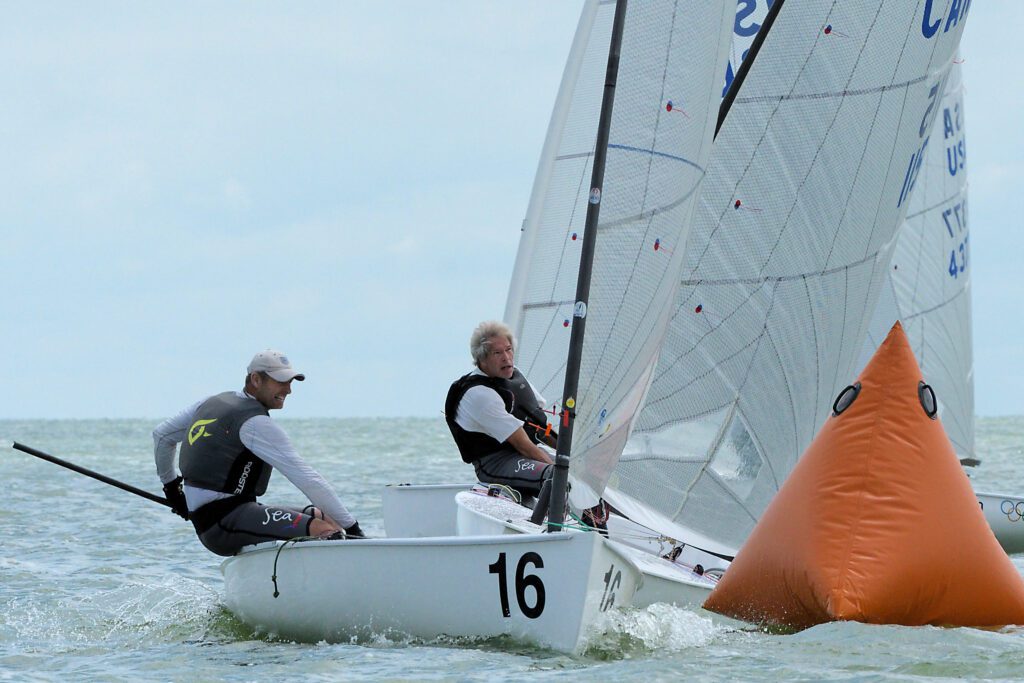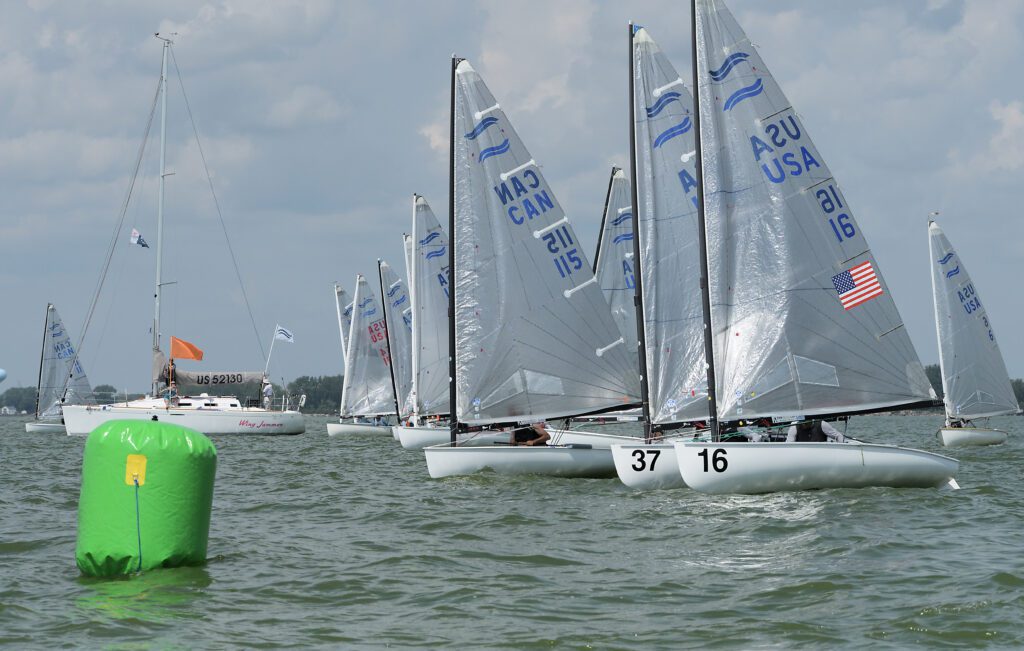

About US Finn Class
The Finn was designed in 1949 to be the ‘monotype’ dinghy at the 1952 Olympic Games. It has remained an Olympic class ever since and is now the longest standing of any Olympic dinghy class. It currently fills the slot for the Heavyweight Dinghy. While it was dropped from the Olympics, the class continues to grow around the world with strong class organization and competitive racing opportunities. This dinghy is a one person monohull dinghy with a unique carbon mast. The sail has complete sail trim controls to allow the sailor to modify sail settings during racing in any condition. The US Finn organization is part of the International Finn Class Association. Competitors travel around the globe to sail against the best in the class. A technical boat that is a growing class in the US especially for the sailor who enjoys challenging themselves on and off the water. The boat is sailed successfully by young and old, men and women, and enjoys international support around the globe.
Hull Material GRP (classic boats wood)
Year Designed: 1949
Hull Length 14 ft
Beam 1.5 metres
Mainsail Area 10.2 square metres
Hull Weight 107 kg
Design
Boats Produced: 4300
Class boat builder(s):
Devoti Sailing
HiTechSailing
Pata Boats
Wilke
DC Composites (builder of the TT2 Finn)
BlueBlue
Approximately how many boats are in the USA/North America? 400
Where is your One-Design class typically sailed in the USA? List regions of the country:
Southern California, Northeast, Gulf Coast, Midwest, Rocky Mountain, Texas, Northern California, Northwest
Does this class have a spinnaker or gennaker? No
Ideal combined weight of range of crew: 175-300lbs
Portsmouth Yardstick Rating: 90.1
Boat Designed in 1949
Beam: 4′ 10″
Weight of rigged boat without sails: 236 lbs
Draft: 6.7 “
Mast Height: 21′ 10″
